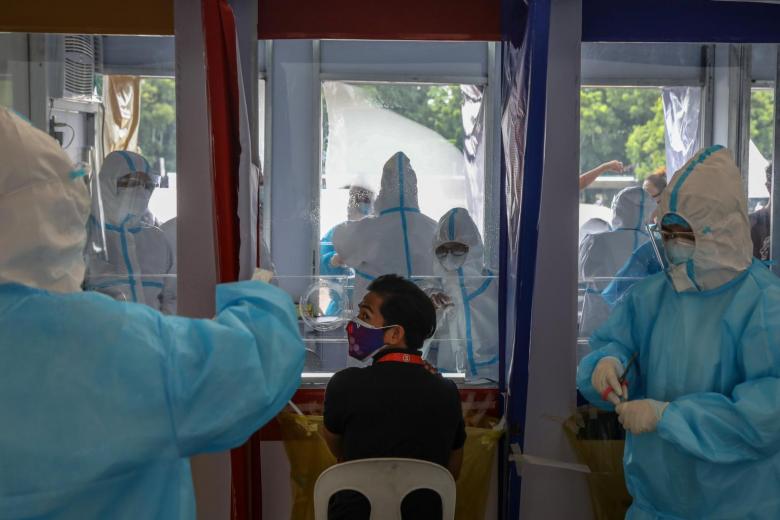MANILA - President Rodrigo Duterte has expressed hope that the Philippines "will be back to normal" by December, when he expects a vaccine against Covid-19 to emerge out of China
"I promise you, by the grace of God, I hope by December we will be back to normal," he said during his regular briefing aired on Friday (July 31).
"Let's just wait for a vaccine. Let's wait till December, if we can just be patient... We are not going back to a 'new normal'. It's going to be normal again," he said.
He said this as he extended restrictions in Metro Manila until mid-August.
The Philippines this month recorded South-east Asia's biggest daily jump in coronavirus deaths and biggest single-day increase of confirmed infections, overwhelming the healthcare systems in some cities.
Health officials on Friday reported 4,063 new cases, the country's largest single-day increase in new coronavirus cases. On July 11, they announced 227 deaths, a spike from a daily average of about 10 in previous days. Forty more deaths were added on Friday.
Total confirmed cases and deaths now stand at 93,354 and 2,023 respectively.
The capital region, provinces south of it, and cities in the central Philippines have been under quarantine restrictions since June. Movements of the elderly and children have been restricted, and the operations of businesses from restaurants to gyms limited.
"My plea is to endure some more," said Mr Duterte.
He said it was good that the Philippines had kept good relations with China, as he expressed hope China's top pharmacy and research firms would be ready with a vaccine against the coronavirus before the end of the year.
The virus, which has infected over 17 million worldwide and killed over 670,000 and upended the global economy, first emerged in China's Wuhan province.
"That's what I've been repeating: vaccine, vaccine, vaccine. If there's no vaccine, if this persists, we will run out of money," said Mr Duterte.
Finance Minister Carlos Dominguez said the Philippines was ready to purchase doses for at least 20 million people, that it would distribute for free.
State-run financial institutions were ready to earmark some US$400 million (S$548 million) for vaccine purchases, he said.
"This will be over by December… We're in good shape to overcome this crisis," he said.
Eight of the nearly two dozen potential vaccines against Covid-19 are from China, the most of any country.
Mr Duterte mentioned China's Sinopharm and Sinovac Biotech as potential sources for vaccines.
Sinopharm has two vaccines that it has been selectively testing on small pools of people. Both have completed Phase 2 trials.
Sinovac is teaming up with Instituto Butantan in Brazil, where about 600,000 have signed up for Phase 3 trials.
CanSino Biologics, a partner of China's People's Liberation Army, has published results that said its vaccine, tested in a trial of about 500 participants in China, has produced strong immune responses with only minor side effects.
Outside China, the first large study of the safety and effectiveness of a coronavirus vaccine in the United States began this week, according to the National Institutes of Health and the biotech company Moderna, which collaborated to develop the vaccine.
A second company, Pfizer, also announced this week that it had also begun a late-stage study of a coronavirus vaccine. Pfizer has been working with a German company, BioNTech.
The US government announced last week that it had reached a US$1.95 billion deal to buy 100 million doses of Pfizer's vaccine by the year's end, but only if the trial proves it safe and effective.
Sinopharm and Sinovac are currently building factories capable of producing 300 million doses a year.
Following an appeal from Mr Duterte, China's Foreign Ministry assured the Philippines would have priority access to China's vaccines.
"The Philippines is a friendly close neighbour and we will give priority to its needs once we succeed in developing a vaccine," said the ministry's spokesman Wang Wenbin.












